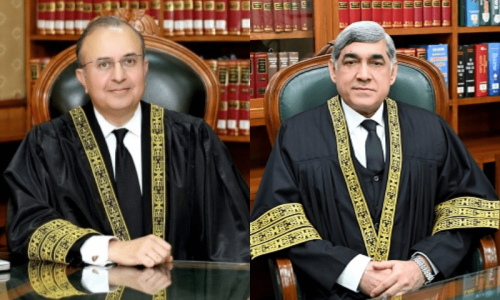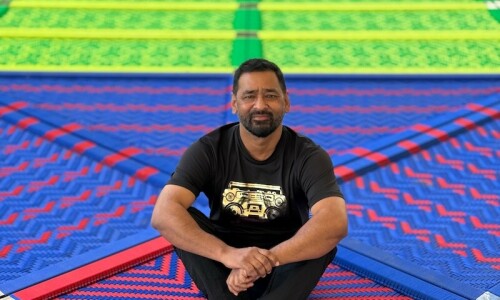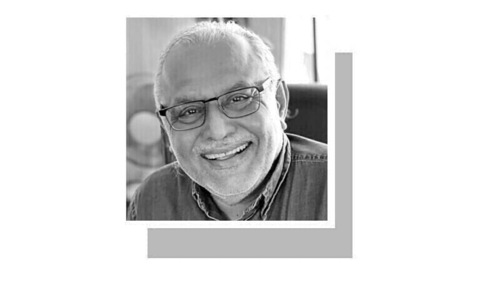GENEVA, Feb 6: Saudi Arabia told the UN Human Rights Council on Friday that its status as an Islamic state should safeguard fundamental rights rather than fuel abuse, as it faced western calls for action to stop violations.
Zeid Al-Hussein, vice-president of the country’s three-year-old human rights commission, acknowledged there were violations in the country, often as a result of “individual practices” rooted in its tribal history.
But he insisted that Islamic law and practices should complement the legal standards the United Nations upholds.
“I wish to emphasise that — and I weigh my words very carefully — religious particularities, as correctly viewed in Islam, supplement rather than detract from international human rights standards,” he told the Council.
“I am aware that, in most Islamic countries, individual practices do not always reflect the true essence of Islam and much remains to be done to ensure that human rights are promoted and protected,” Hussein said.
Saudi Arabia’s human rights record was being examined by the body’s 47 member states under its first ‘universal periodic review.’
“We acknowledge that there are some human rights violations attributable to individual practices,” Hussein said.
“Many of these violations fall within the context of domestic violence, to which confusion between the true Islamic Shari’a and customs and traditions is a contributing factor,” he added.
Human rights groups such as Amnesty International and Human Rights Watch have been scathing of Saudi Arabia, highlighting its uneven application of executions — 102 in 2008 and 153 in 2007 — and strict Islamic policies.
Those include the way women are subject to a male guardian’s permission to travel, work and marry.
They also complain of abuse of women, torture, widespread arbitrary arrest, indefinite detention without charge or trial and jailing of political activists in the Gulf nation.
Several countries, including Britain, Canada and Norway, recommended that Saudi Arabia abolish the family guardianship system and do more to prevent customs and traditions from harming women and children.
“While progress has been made, particularly in recent years, Saudi Arabia has more to do to ensure that its legal framework and domestic implementation meets international human rights standards,” a British delegate told the Council.
Switzerland and Italy called for a moratorium on the death penalty, while several countries criticised corporal punishment.
Hussein said the government was “constantly” trying to prevent domestic violence, control by husbands on their wives and children, pointed to a range of measures introduced over the past two years.
“In actual practice, the concept of guardianship, for example, often loses its connotation of responsibility and care, which are transformed into domination and coercion,” he acknowledged.
Hussein also accepted that the kingdom was “not exempt” from some forms of human trafficking, including financial pressures on migrant workers and the smuggling of children to be beggars, and highlighted forthcoming legislation designed to eradicate it.
Human rights groups say that domestic workers especially are subjected to abuse and exploitation that is sometimes tantamount to slavery.
Despite guarantees for freedom of belief, non-Muslim religious worship could only be free within private homes in the Kingdom, Hussein said, largely due to the “sensitivities” that arose with its status as host to Islam’s holiest shrines at Mecca and Medina.
“There is no point in discussing this issue from the standpoint of positive man-made law, since religious belief stems from the heart and not from rational proof,” he explained.
Our belief, which we expect others to respect and not contest, in the same way as we respect and do not contest their beliefs, he added.—AFP
















































Dear visitor, the comments section is undergoing an overhaul and will return soon.